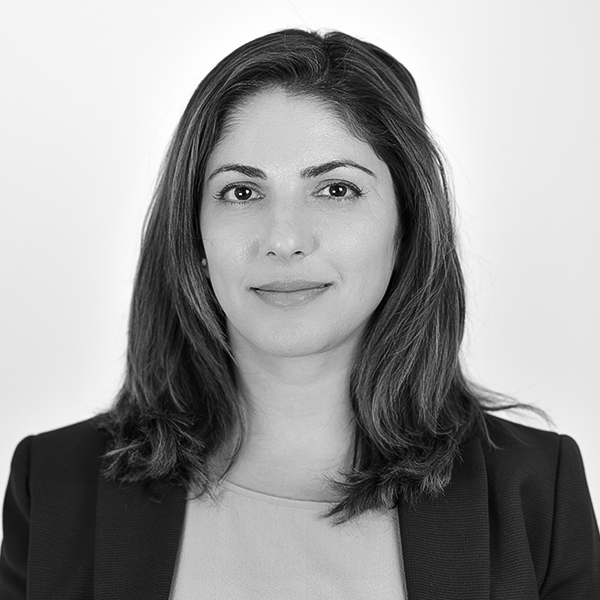Areas of Expertise
Litigation
Due to our team’s persuasive representation in several languages including English, German, French, and Arabic, the court as well as the expert hearings can be performed by us in order to create a solid basis of your case and reach the best outcome. This brings clear advantages for you in the proceedings, as misunderstandings due to communication channels are avoided.
Our focus is on the following areas:
- Advice on litigation management and litigation avoidance in the UAE
- Damage analysis
- Brokering amicable settlements
- Representation before local and international courts including arbitration courts
- Independent representation by our team at expert hearings
A. The UAE legal system: General information
The legal system of the UAE is based on civil law, which is also predominantly applied in Europe. On the contrary, common law is the legal system in the UK and the US. Civil law is not based on precedent verdicts of the past (case law) but mainly written law in the form of statutes.
The judicial structure of the UAE consists of two separate systems: the Federal system and the Local system at Emirate level. Each emirate has the discretion to establish its own legal system, i.e. to issue local legislation and create local courts, or to otherwise solely be governed by the Federal system (with its laws and courts). Abu Dhabi, Dubai and Ras Al-Khaimah are the only emirates out of the seven, which have independent judicial systems, where their respective authority has jurisdiction over matters not assigned to the Federal Judiciary under the Constitution. Areas where the federal authorities have exclusive jurisdiction include education, currency, and defense and security. On the federal level, the court structure consists of a hierarchy of three instances: starting with the Court of First Instance, followed by the Court of Appeal and finally the Supreme Court located in Abu Dhabi. Similarly, on the local levels, the court structure consists of a hierarchy of three instances: first, the Court of First Instance, then the Court of Appeal, followed by the court of last resort, the Court of Cassation. The judicial structure of the UAE consists of two separate systems: the Federal system and the Local system at Emirate level. Each emirate has the discretion to establish its own legal system, i.e. to issue local legislation and create local courts, or to otherwise solely be governed by the Federal system (with its laws and courts). Abu Dhabi, Dubai and Ras Al-Khaimah are the only emirates out of the seven, which have independent judicial systems, where their respective authority has jurisdiction over matters not assigned to the Federal Judiciary under the Constitution. Areas where the federal authorities have exclusive jurisdiction include education, currency, and defense and security. On the federal level, the court structure consists of a hierarchy of three instances: starting with the Court of First Instance, followed by the Court of Appeal and finally the Supreme Court located in Abu Dhabi. Similarly, on the local levels, the court structure consists of a hierarchy of three instances: first, the Court of First Instance, then the Court of Appeal, followed by the court of last resort, the Court of Cassation.
There are the following jurisdictions in the UAE:
- Civil Court
- Criminal Court
- Personal Status Court (Shari'a)
- Labour Court
- Property Court
- Commercial Court
According to Article 7 of the Emirati Constitution, Islamic Shari'a law is supposed to be the main source of legislation in the UAE, although nowadays it plays a rather minor role in practical application in the field of civil law. As a result, this means that the Constitution, the federal and local laws of the various emirates, and the principles of Shari'a serve as sources of law for the UAE. Additionally, UAE law has been influenced by Islamic, French, Egyptian and Roman law. Individual free zones have created further regulations which must also be complied with if the dispute relates to a free trade zone.
Firstly, the courts of the individual emirates apply the federal law. If federal law is absent or silent and an emirate has decided to adopt local laws for this area, these will be used.
The most important laws in the field of general civil law are the UAE Civil Code (Federal Law No. 5 of 1985) and the Commercial Transaction Law (Federal Law No. 18 of 1993).
B. Things to know about the court proceedings
In principle, the Court of First Instance is the first degree of litigation and has jurisdiction over all civil, commercial, administrative, labor and personal status disputes. These courts are also in charge of enforcing judicial execution deeds, as well as executions by deputation or reference. If one of the parties is dissatisfied with the judgement of the Court of First Instance, it is possible to appeal to the Court of Appeal, as the Court of Second Instance, and thus proceed against the judgement that was previously made. Only the convicted may appeal the court judgement. If the ruling is accepted explicitly or implicitly, appeal is not possible. To challenge judgments of the second instance, it is necessary to go to the Court of Cassation. The Court of Cassation does not judge the facts of the case but only examines legal questions such as the interpretation or correct application of the law. A redetermination of the actual facts is not possible. The judgements of the Court of Cassation are binding and cannot be appealed. For all appeals it is crucial to meet the time limit (see question B.2.). Otherwise, you lose your right to appeal.
There are different time limits for asserting claims before courts of first instance on a case-to-case basis. Unless otherwise stipulated, the appeal has to be filed within 30 days or in some cases 10 days from the date of the issuance of the judgement (Article 159 of the Civil Procedures Law). The appeal is to be filed by submitting a pleading (Article 162 of the Civil Procedures Law). In order to appeal to the Court of Cassation, the appeal must be filed within 60 days of the judgement of the Court of Appeal if the value claimed in the action exceeds AED 200,000 or cannot be evaluated.
The Civil Division and the Criminal Division deal with civil and criminal matters respectively. The Personal Status court mainly deals with family matters, such as marriage, divorce, guardianship, custody, inheritance or alimony. Only cases involving UAE nationals who are also Muslims end up in the Personal Status court. Different laws apply to foreigners, immigrants or non-Muslims. Disputes between employers and employees, such as non-payment of salaries or compensation for arbitrary dismissal, are heard in the Labour court. Property courts, on the other hand, deal exclusively with real estate disputes, whereas commercial courts are responsible for commercial contracts and banking processes, among other things.
In principle, the personal status law can also apply to foreigners. But according to its Article 1, different laws, for example the law of nationality, can be used on request as well. No matter what law is applied, it should be noted that all documents including legal texts must be translated to Arabic and submitted to the court. Some Emirates, such as Abu Dhabi, have also enacted their own personal status law for non-Muslim foreigners, which emphasizes the equality between men and women.
In addition to the distinction between the federal and local levels and the division of the courts according to instances, a differentiation must also be made according to the court circuits. This means that at each court level, the case is further categorized and assigned to a court circuit based on the size of the case and the expertise of the judges. The amount in dispute, the nature of the case and the number of judges determines whether it is a minor circuit or a major circuit. The decision as to which court district is relevant also has an impact on the amount in dispute above which the judgment can be appealed: An appeal to the Court of Appeal is in general only possible if the amount in dispute exceeds AED 20,000. This makes some first-instance judgments unappealable on the merits and thus protects the judiciary from being overburdened
In the UAE, civil proceedings are primarily conducted in writing. There are hardly any oral hearings before the judge; instead, only formal motions are filed during the actual court hearings. That is, the parties (plaintiff and defendant) file their respective pleadings and request an adjournment to state their case To determine the facts of the case, an in-court or external expert (court expert) is appointed in most cases. This expert holds several meetings outside the court, where the parties have to present their evidence, e.g. examination of witnesses, visual or documentary evidence. Theoretically, European lawyers are also allowed to attend meetings of experts. However, the language of expert meetings is Arabic and all documents must be submitted in Arabic, unless the parties agree to submit English documents and the expert accepts this. After the expert meetings the expert report is submitted to the court, which the parties can then submit their comments to. Thereafter, the Court Expert writes his final opinion. The judges of the first instance often follow the expert's opinion. Thus, the expert opinion and the preparation of the case before the expert are of particular importance. Since our lawyers at Daburon & Partners are fluent in Arabic, we are happy to advocate your interests already during the expert meetings to reach the best possible foundation for your case.
In both civil and criminal cases, the applicant is responsible for gathering evidence. This means that it is the responsibility of the person who is making a claim, i.e. who "wants something from another person", to collect and present evidence to the court. However, this is not as easy as it seems. Oftentimes the documents submitted are not sufficient to serve as evidence in court. Therefore, it is advisable to submit additional documents of evidence that were signed by the other party already at the time of contract conclusion or during the business relationship.
Only locals who are licensed to practice law are allowed to appear before UAE courts. The foreign legal consultants usually prepare the pleadings. However, this rule only applies to appearing directly in court. When it comes to expert hearings, foreign legal consultants are allowed to appear. But these hearings usually take place in Arabic. This is the reason why many foreign legal consultants do not attend the hearings but just prepare their statements and have them translated elsewhere before submitting them. This practice often leads to translation errors and misunderstandings, which has a negative impact on the chances of success of your case. Since our team at Daburon & Partners is internationally trained and multilingual, we not only conduct client meetings in different languages, but directly draft pleadings and statements to the courts and the hearings in Arabic, as well as participate in the expert hearings to represent you. Furthermore, we not only appear before the local courts but represent you before the DIFC Courts since Clemens Daburon is licensed as practitioner there.
The official language of UAE Courts is still Arabic language. However, the New Law (Federal Decree-Law No. (42) of 2022) provides an exception where cases can be held in the English language under certain/special conditions.
In general, foreign judgments will only be enforced if there is an international treaty between the UAE and the state in question. The enforceability of foreign judgments in the UAE depends hereby on several factors, including the place of issue of the foreign judgment and the location of the assets. The UAE is a signatory to a number of Conventions (including the GCC and Riyadh Conventions, and the New York Convention) and bilateral agreements for the reciprocal recognition and enforcement of foreign judgments (e.g. with China, Singapore and France) which can lead to a recognition of foreign judgments But the UAE only recognizes foreign judgments from those states that also enforce UAE judgments (so called reciprocity).
Whether judgments issued in the UAE can be enforced abroad cannot be answered in a blanket manner. This depends on the national regulations and the individual case. If you have any question about the enforceability of UAE judgements, please feel free to contact us. We at Daburon & Partners are happy to assist.
The cost of court proceedings varies from one case to another. Determining factors include the competent court, the value of the case, the complexity of the case, as well as how many court instances and court experts are involved, the needed document translations, the legalizations, and so on.
The length of a legal case varies from case-to-case depending on the complexity of the case. It may take up to several months or even years.


